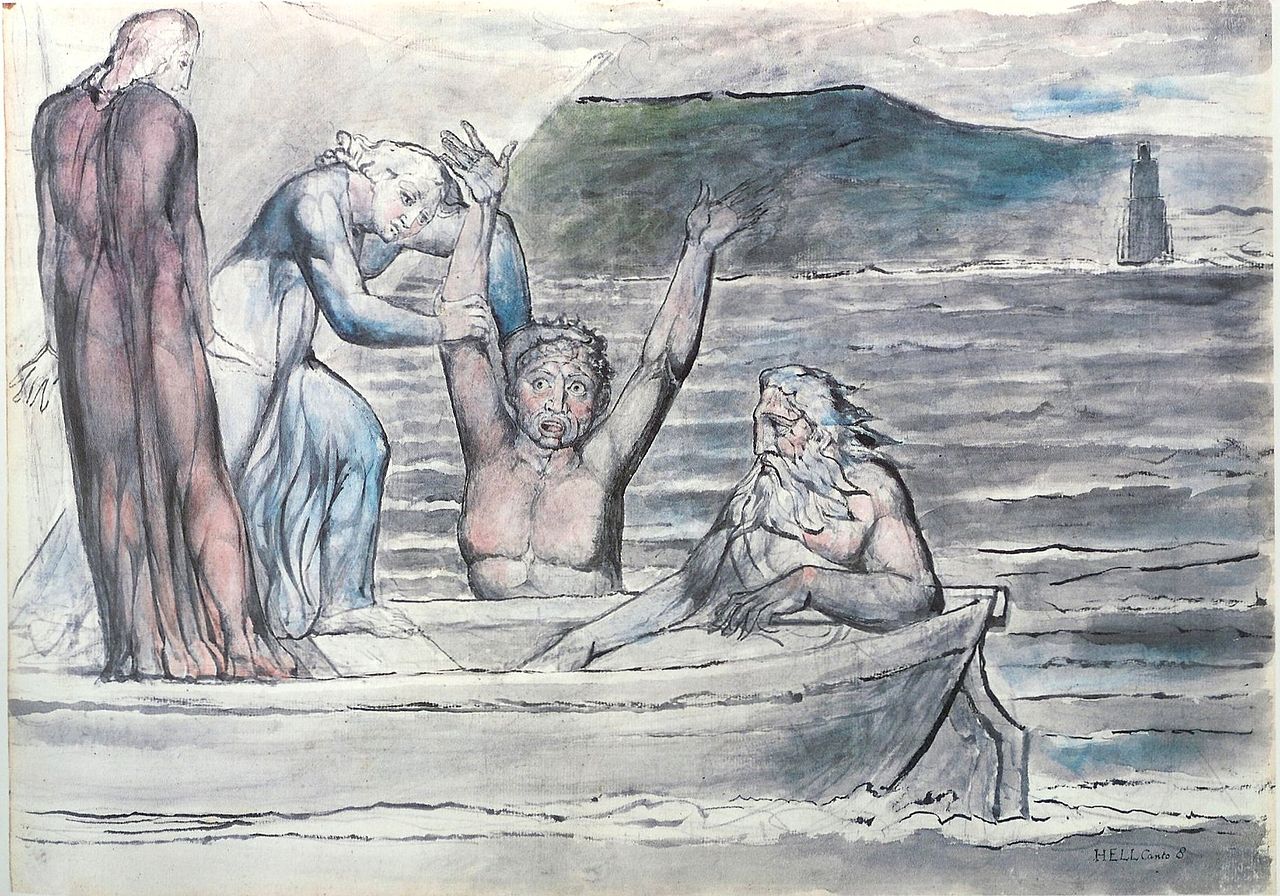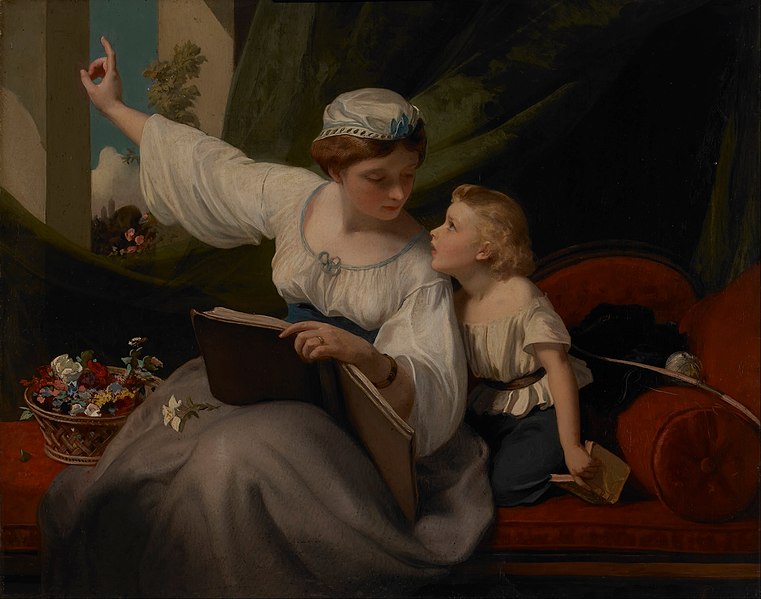 |
| Dante's Inferno, Canto 8 by William Blake (Wikimedia Commons). |
Last week I wrote about the three sources of temptation. Now let’s look at temptation by the Devil in more detail.
Two Scripture passages show us how the Devil tempts us. Genesis 3 tells how Adam and Eve gave in to temptation and sinned. Matthew 4 tells how Jesus resisted the Devil’s temptation. The two stories contain striking similarities.
The lust of the flesh, the lust of the eyes, and the pride of life
When the Devil tempted Eve, the first thing she noticed was that the forbidden fruit was “good for food” (Gen 3:6). Similarly, the Devil first tempted Jesus by telling Him to turn stones into bread (Mt 4:3). So we see that the Devil often begins by appealing to our natural appetites. In fact, he tempts us with the desires of the flesh.Apparently, Eve was not completely swayed by this temptation, for she also noticed that the fruit was “a delight to the eyes.” Catholic tradition equates this delight with greed–the desire to have something that is not rightly ours, or to have it in overabundance, or otherwise outside of God’s will. Matthew’s Gospel sets this as Jesus’ third temptation. The Devil promised Jesus all the kingdoms of the world for the “small” price of worshiping him. It’s easy to see how this corresponds to temptation by the world.
Continue reading at Contemplative Homeschool.





